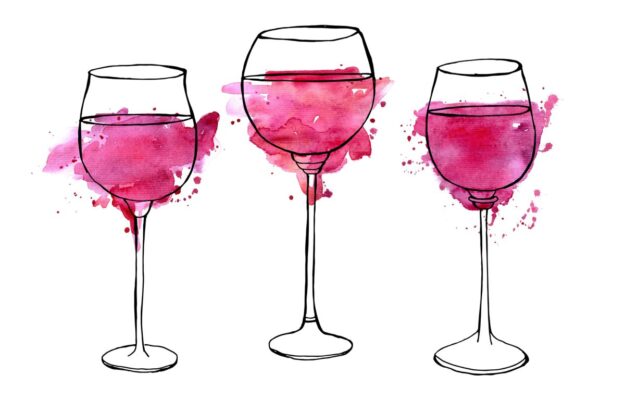Wine market must consider various dynamics, mostly in this exact historical moment, where some main factors are included among the preoccupations of the period, such as price instability, excessive supply and the decline in demand. Not to mention the mutation in consumption which is leading to changes in the types of products that are sold. A significant challenge for wine “players” and who “invites” them not to immediately enter the market in a passive way, but, rather, to be increasingly proactive by tracing new paths and entering contexts that, perhaps, in the past were less travelled. In fact, there is no shortage of examples of traders from all over the world, in the European Union, from the UK to Italy, as well as in the United States and beyond, who are successfully facing the challenge by finding new ways to the market. This is demonstrated by a recent study conducted among the members of Liv-Ex, the reference index for the secondary fine wines market. With access to over 70 million pounds of live offers on the Liv-Ex exchange, merchants are expanding their offering and are able to offer their customers more choice; they also use Liv-Ex to automatically list (or “publish”) hundreds of wines for sale on the exchange, saving time and administrative resources, so that their staff can dedicate more time to customers.
Among the examples cited, one of particular success concerns “Wine Empire”, from the United States. Founded eight years ago by Gianluca and Ana Paula Queiroli, in the suburbs of Boston, what began as a traditional "physical" wine shop has become a point of reference for the marketing of fine wines, with a strong online presence, serving customers on local, national and international scale. Wine Empire initially had around 1,000 products in store, before deciding to ride the market and the opportunity to offer more premium wines. The solution was found in the Liv-Ex automation system which allowed them to expand their offer: “starting from 1,000 wines, we now have a “virtual cellar” of 23,000 wines thanks to Liv-Ex”, stated Gianluca Queiroli of “Wine Empire”. Connecting their website to Liv-Ex data was the “move” to be made in order to offer customers the Liv-Ex wines directly from their own website, without any capital commitment.
And then there is the case of the Benchmark Wine Group (Bwg), founded in the Napa Valley, Usa, in 2022, which is one of the main buyers of fine wines in the United States and one of the largest wine retailers by dollar value. With a particular focus on rare and hard-to-obtain labels, it supplies other retailers, restaurants and private collectors around the world. Bwg was looking for new ways to source wine and the right answer came with automation: by connecting its e-commerce site with Liv-Ex, Bwg was able to offer its customers direct access to the global wine market of fine wines. This creates the possibility of purchasing the wines offered on Liv-Ex, with prices ranging from 40 to 20,000 dollars per bottle, without having to hold stocks and tie up capital, and in complete safety considering that Liv-Ex guarantees the status and the availability of stocks. As David Parker, at Benchmark Wine Group, explained, “when you shop at Liv-Ex, you have guaranteed supplies. We can offer our customers more products than we have in our physical inventory”.
From the United Kingdom, instead, the case of Farthinghoe Fine Wine is cited, a company specialized in the purchase and sale of international wines, which was able to speed up daily work, in particular as for precisely establishing the prices of the cellars for customers, an operation which used to require a long time. The turning point came with “Wine Matcher”, an online tool for wine trading that simplifies the preparation of long product lists. Rebecca Adams, who works in sales and marketing for the company, explained that previously “I had to research each line individually, vintage by vintage, wine by wine, and it can take hours, especially if there are more than a hundred cases of stock that need to be evaluated”, a simplified concept with the phrase “an activity that used to take 3 hours now takes 30 minutes”.
The innovations and benefits of technology have also concerned Italian companies as demonstrated by the example of Investireinvino.it, an investment business in wine in Italy, launched in 2020 by Emanuele Spagnuolo. The entrepreneur was looking for a simpler way to buy, sell and evaluate investments by finding the solution in a single, integrated system and therefore “pricing, trading and storage, all in one package. A huge advantage for my business in the fine wine sector”, said Spagnuolo. By closely following price trends in the secondary market, members can decide whether to sell or to keep wines in storage until there is a better opportunity, and this is largely possible through Liv-Ex.
Solutions that can certainly help, in terms of timing, simplification, knowledge of the market, proximity to the customer, in a complex period and where technology can also provide an important “assist”.
Copyright © 2000/2026
Contatti: info@winenews.it
Seguici anche su Twitter: @WineNewsIt
Seguici anche su Facebook: @winenewsit
Questo articolo è tratto dall'archivio di WineNews - Tutti i diritti riservati - Copyright © 2000/2026







































































































































































































